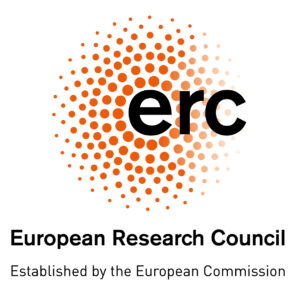Background
An old proverb says that parents should “prepare the child for the road, not the road for the child”. However, both popular and scientific accounts on the phenomena of “overparenting” or “helicopter parenting” describe how nowadays parents increasingly would do the opposite (1,2). It is probably an overstatement that the phenomenon is taking epidemic proportions, as is sometimes suggested. Nevertheless, there are indications that, compared to earlier decades, parents are more often overly involved and overly protective in their child-rearing (3). Such a tendency may be potentially problematic, as it may put future generations of adolescents and young adults at risk for psychosocial difficulties and may bring about difficulties during the transition to adulthood (4).
In the present research project, we focus on overprotective parenting, which involves parents’ provision of protection that is excessive, considering the child’s developmental level (5). This may involve, for instance, constantly warning the child about every potential danger, solving the child’s problem without him/her trying to solve it by him/herself, intervening in the child’s conflicts with peers, and shielding away the child from any situation that may be potentially challenging or risky (6). In other words, parental overprotection seems to come down to the belief that it is “better to be safe than sorry” when raising a child, hence the project acronym SAFE-SORRY. Unfortunately, recent research suggests that overprotective parenting is associated with an increased risk for psychosocial difficulties and mental health problems, such as feelings of anxiety and academic problems (7,8). As parents overprotect their children, they do not allow their child to develop the necessary skills and competences to successfully face the challenges that are an inherent part of life (9, 10).
Research goals
Given the potentially harmful consequences of overprotective parenting, the goal of the SAFE-SORRY research project is to better understand why some parents engage in overprotective parenting practices. Past research, conducted in psychology and related branches, already identified a number of potential factors that may elicit overprotective parenting. A number of studies focused on child-related characteristics: for instance, chronic or severe health problems throughout a child’s development may elicit parental worries and protective behaviors, which may reinforce a child’s vulnerability (11,12). Other studies rather focused on parent-related factors. For instance, when parents are generally more fearful in their personal functioning, they are more likely to be so in their child-rearing as well (13). Although this research is insightful as it helps us to better understand the potential causes of overprotective parenting, the larger societal, cultural, economic and historical context are often forgotten. This is potentially problematic, as parents might be criticized for relying upon a parenting approach that may, in fact, be a strategy to adapt to a changing socio-economic reality.
In the SAFE-SORRY research project, we aim to bring together theories and knowledge from different disciplines (including developmental psychology, social psychology, sociology, economics, and clinical psychology, among others) to provide a more contextualized understanding of the factors that explain why some parents are overprotective. First, we will examine whether societal pressures about parenthood (and about motherhood in particular) impel parents to be highly invested in their parental role, which may bring about more overly involved parenting (14,15). Second, given the strong media attention to the many potential risks and dangers in children’s immediate environment (e.g., the lure of cellphones and the danger of addiction) and in society at large (e.g., terrorism, climate change), parents may have considerable worries about their children’s safety and welfare, which might foster overprotective parenting as well (16). Third, growing economic inequality may push parents to be increasingly involved in their children’s academic lives, as their children’s future economic prosperity hinges upon their educational achievements (17). Throughout three broad work packages, the SAFE-SORRY project aims to examine whether the socio-economic factors explain why some parents engage in overprotective parenting, thereby also testing whether some parent factors exacerbate or buffer the effects of these contextual factors.
Methodology
A first work package is a three-year longitudinal study among 660 parents of adolescents in their penultimate year of obligatory schooling. Parents will be invited to participated in a questionnaire-study at six occasions, separated by six-months intervals. This will allow us to examine how parental overprotection evolves across time, including across their child’s transition out of obligatory schooling, and whether this evolution is linked to specific perceptions and beliefs about the broader socio-economic context. A second work package involves observational research. In this case, we will invite parents over at university (sometimes in the company of their adolescent), and we will invite them to participate in an interview or a task: such research allows gaining more fine-grained insight into the subjective experiences of parents and adolescents. A third work package involves a cross-cultural study, for which we will work together with 10 different countries (Australia, Belgium, Croatia, France, Georgia, Greece, Italy, Norway, Sweden, Switzerland). This study will allow us to directly examine how different aspects of the cultural, societal, and economic context explain differences and similarities in parenthood across these different cultural contexts.
Funding


This project has received funding from the European Research Council (ERC) under the European Union’s Horizon 2020 research and innovation programme (grant agreement No 950289).
References
1. Acocella, J. (2008). The child trap: The rise of overparenting. The New Yorker. Retrieved from https://www.newyorker.com/magazine/2008/11/17/the-child-trap.
2. Bernstein, G., & Triger, Z. (2010). Over-parenting. University of California-Davis Law Review, 44, 1221-1279.
3. Wray, D., Ingenfeld, J., Milkie, M., & Boeckmann, I. (2021). Beyond childcare: Changes in the amount and types of parent-child time over three decades. Canadian Review of Sociology / Revue canadienne de sociologie.
4. Ungar, U. (2009). Overprotective parenting: Helping parents provide children the right amount of risk and responsibility. The American Journal of Family Therapy, 37, 258-271.
5. Thomasgard, M., Metz, W. P., Edelbrock, C., & Shonkoff, J. P. (1995). Parent-child relationship disorders: I. Parental overprotection and the development of the Parent Protection Scale. Journal of Developmental and Behavioral Pediatrics, 16, 244-250.
6. Brenning, K. M., Soenens, B., Van Petegem, S., & Kins, E. (2017). Searching for the roots of overprotective parenting in emerging adulthood: Investigating the link with parental attachment representations using an Actor Partner Interdependence Model (APIM). Journal of Child and Family Studies, 26, 2299-2310.
7. Van Petegem, S., Zimmermann, G., Albert Sznitman, G., & Darwiche, J. (2021). Putting parental overprotection in a family systems perspective: Relations of overprotective parenting with perceived coparenting and adolescent anxiety. Family Process.
8. Spokas, M., Heimberg, R. G. (2009). Overprotective parenting, social anxiety, and external locus of control: Cross-sectional and longitudinal relationships. Cognitive Therapy and Research, 33, 543-551.
9. Van Petegem, S., Antonietti, J.-P., Eira Nunes, C., Kins, E., & Soenens, B. (2020). The relationship between maternal overprotection, adolescent internalizing and externalizing problems, and psychological need frustration: A multi-informant study using response surface analysis. Journal of Youth and Adolescence, 49, 162-177.
10. Zimmer?Gembeck, M. J., & Skinner, E. A. (2016). The development of coping: Implications for psychopathology and resilience. In D. Cicchetti (Ed.), Developmental psychopathology: Risk, resilience, and intervention (pp. 485-545). John Wiley & Sons.
11. Holmbeck, G. N., Johnson, S. Z., Wills, K. E., McKernon, W., Rose, B., Erklin, S., & Kemper, T. (2002). Observed and perceived parental overprotection in relation to psychosocial adjustment in preadolescents with a physical disability: The mediational role of behavioral autonomy. Journal of Consulting and Clinical Psychology, 70, 96-110.
12. Hullmann, S. E., Wolfe-Christensen, C., Ryan, J. L., Fedele, D. A., Rambo, P. L., & Chaney, J. M. (2010). Parental overprotection, perceived child vulnerability, and parenting stress: A cross-illness comparison. Journal of Clinical Psychology in Medical Settings, 17, 357-365.
13. Coplan, R. J., Arbeau, K. A., & Armer, M. (2008). Don’t fret, be supportive! Maternal characteristics linking child shyness to psychosocial and school adjustment in kindergarten. Journal of Abnormal Child Psychology, 36, 359-371.
14. Hays, S. (1996). The cultural contradictions of motherhood. New York: Yale University Press.
15. Newman, H. D., & Henderson, A. C. (2014). The modern mystique: Institutional mediation of hegemonic motherhood. Sociological Inquiry, 84, 472-491.
16. Furedi, F. (2018). How fear works: Culture of fear in the twenty-first century. London, UK: Bloomsbury Publishing.
17. Doepke, M., & Zilibotti, F. (2019). Love, money, and parenting: How economics explains the way we raise our kids. Princeton, NJ: Princeton University Press.